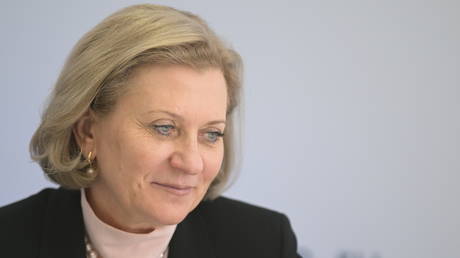ARTICLE AD BOX
The disease can be controlled without plunging Europe into lockdown, Hans Kluge has said at a briefing
Mpox, formerly known as monkeypox, does not pose the same public health threat as Covid-19, and will not lead to a “cycle of panic” and lockdowns, Hans Kluge, the World Health Organization’s (WHO) regional director for Europe, has said.
Earlier this month, the WHO declared mpox a public health emergency of international concern, the same designation it gave to Covid-19 in early 2020. While a mild variant of the virus – dubbed Clade 2 – spread around the world in 2022, a more infectious strain – Clade 1b – has killed hundreds of people in central Africa and was detected last week in Sweden.
In a UN briefing on Tuesday, Kluge said that by supplying enough vaccines to affected nations in Africa and encouraging close observation of mpox patients, the spread of the disease can be controlled.
“Are we going to go in lockdown in the WHO European region, is it another Covid-19? The answer is clearly: ‘no,’” Kluge stated.
Read more ‘Traditional values’ will protect Russians from mpox – health regulator
‘Traditional values’ will protect Russians from mpox – health regulator
“Two years ago, we controlled mpox in Europe thanks to direct engagement with the most affected communities of men who have sex with men,” he continued. “Will we choose to put the systems in place to control and eliminate mpox globally or will we enter another cycle of panic, then neglect?”
The overwhelming majority of Clade 2 cases occurred among gay and bisexual men, particularly those with multiple sexual partners. Clade 1b is believed to spread more easily through close, non-sexual contact.
Mpox is similar to human smallpox, which was eradicated in 1980, and is endemic in parts of west and central Africa. Its initial symptoms include fever, headache, muscle aches, backache, swollen lymph nodes, chills, and exhaustion, and those afflicted develop distinctive skin lesions.
Previously known as Monkeypox, the disease was renamed mpox by the WHO in late 2022, with the organization claiming that the original name was “racist and stigmatizing.”
.png)
 3 months ago
1
3 months ago
1








 English (US)
English (US)